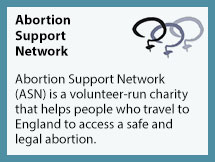The horrific court case involving a young pregnant brain-dead woman might not be a one-off
thejournal.ie, March 30, 2016 by Kate Butler
The last government legislated for an individual’s autonomy in medical cases – except if you’re a pregnant woman, writes barrister Kate Butler.
 CHRISTMAS TWO YEARS ago, a story emerged of such compelling sadness, but also of grotesque horrors, that it was hard to look away. A young woman, mother of two small children, was approximately 15 weeks pregnant when she was declared clinically brain dead.
CHRISTMAS TWO YEARS ago, a story emerged of such compelling sadness, but also of grotesque horrors, that it was hard to look away. A young woman, mother of two small children, was approximately 15 weeks pregnant when she was declared clinically brain dead.
The hospital that she reposed in – and another that she was transferred to – uncertain of the position of the foetus under the Constitution and fearful of prosecution under the Protection of Life During Pregnancy Act 2013, did not turn off the life-support machine.
This state of “experimental medicine”, as described by Dr Frances Colreavy – an expert in intensive care treatment at the Mater Hospital – continued for 20 days until the woman’s family brought an application to the High Court to allow them to end the life-support.
During the emergency Divisional Court hearing, P.P. v HSE, the view of the expert witnesses, as well as the HSE, was that there was no reasonable prospect of the baby being born alive if the life-support continued.
The court held that it was in the best interests of the unborn child to authorise the withdrawal of life support, and said that maintenance of life support would deprive the mother of dignity in death and subject her father, her partner and her young children to “unimaginable distress in a futile exercise”.
• READ: This was not an abortion case, but the courts had to perform a circus balancing act
We can rationalise and package such sad, horrific stories as one-off cases. But the government knows that this situation could arise again: remarkably, it has even legislated for it, in one small sub-section of a very recent act.
The Assisted Decision-Making (Capacity) Act 2015 was signed into law by the president last December. It includes governance on Advance Healthcare Directives (AHD): these allow people to draw up guidelines on how they would like to be treated medically, should they lose capacity into the future.
As former minister for health James O’Reilly noted, the AHD “has been recognised as an expression of an individual’s autonomy”.
Read full artile: www.thejournal.ie






